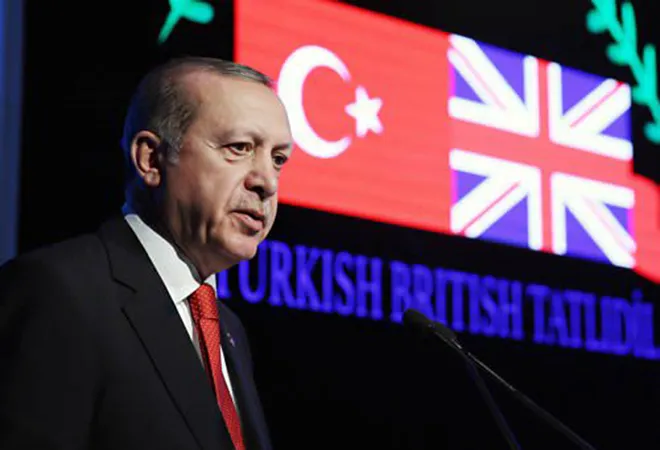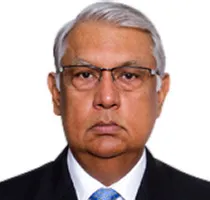President Donald Trump recently said that North Korean leader Kim Jong-un was “acting very very badly”. Trump was reacting to North Korea’s test firing of several missiles; including long range ones, which caused deep concern and nervousness in Japan and South Korea.
German Chancellor Angela Merkel could say something very similar about President Recep Tayyip Erdogan of Turkey after the latter launched several verbal missiles against the Netherlands and Germany - not sparing the West in general.
He accused Germany of using "Nazi practices", branded the Dutch government "Nazi remnants" and told his supporters that "Nazism is alive in the West".
The Escalating Tension
Erdogan’s ire was triggered when the Netherlands blocked two Turkish ministers from addressing the Turkish diaspora in Rotterdam. The Turkish Foreign Minister was not allowed entry into the Netherlands and the flight clearance for his aircraft was cancelled. The other minister was escorted out of the Netherlands across the border into Germany.
The Turkish mob gathered to listen to the Turkish Ministers rioted and the Dutch police had to use force and police dogs to break up the violent mob. The Dutch government’s action was quite unprecedented, but tension between Erdogan’s government and European countries - particularly Germany, the Netherlands and Denmark - has been building up for quite some time.
This dispute has triggered protest demonstrations in Turkey and among the large Turkish diaspora in other European countries. The whole issue has been complicated also by the domestic political situation in the Netherlands, wherein the campaign by the anti-Muslim Dutch politician Geert Wilders and his Party for Freedom (PVV) has led to accusations of “xenophobia and racism” by Turkey. Wilders ultimately did not win in the Dutch election.
Power Grab
Erdogan narrowly survived a massive coup to overthrow his government last year. This led to a massive countrywide purge of civil, military and academics in Turkey. Anyone suspected of association with Fethullah Gulen was sacked from service.
Gulen is a former associate and colleague of Erdogan, now estranged and living in exile in the USA. Gulen has extensive following in Turkey and many other countries, particularly in Central Asia, where his organisation, popularly known as “Hizmet”, runs educational institutions and other welfare organisations.
In Turkey, Gulen’s supporters were recruited in large numbers in the police, judiciary and academia when Gulen and Erdogan were allies.
Before Erdogan’s visit to Pakistan, he demanded that all Turkish teachers in Gulen’s educational institutions be expelled. Pakistan quietly and dutifully complied, clearly desperate to preserve one of its more enduring bilateral relationships.
Erdogan’s political ambition is to become a supreme leader, combining all powers in his person as President. Thus the upcoming April referendum is crucial for Erdogan. Most observers view Erdogan as autocratic and anti-West. He seems to think at one level that it is his duty to conduct a “crusade” against the West, as a Sunni Muslim leader.
He has objected to Chancellor Merkel using the term ‘Islamist terror”, claiming that the expression saddens Muslims because Islam and terror cannot coexist.
Read also | < style="color: #960f0f">Envoy’s killing unlikely to impact Russia-Turkey ties
This clichéd line has been mouthed by Muslim leaders and mullahs so often that it has become jarring, at a time when international perception is influenced by the horror of the barbaric killings in the Islamic State or Da’esh, which has fully justified such barbarity as in conformity with Islam and the Sharia.
A tired Europe and a riled up Turkey
Europe has steadily turned against Erdogan and Denmark is the latest European nation to tell the Turkish PM to postpone his visit. Turkey and Germany have sparred over the German investigation into spying on Erdogan’s opponents by Turkish Imams in Germany, with the active support of the Turkish Embassy.
Turkey arrested a German-Turkish journalist working for the prominent German newspaper Die Welt on charges of "propaganda in support of a terrorist organization and inciting the public to violence."
Erdogan’s anger against Germany was further stoked by the German intelligence chief saying that there was insufficient evidence to blame Fethullah Gulen for the coup attempt last year which led to over 3,000 deaths across Turkey. Adding more fuel to the fire was the rally by the Turkish Workers Party (PKK) in Frankfurt to mark the annual Nowruz festival. Turkey regards the PKK as a terrorist organisation.
Barbed Statements
Erdogan’s barbs against Europe have not abated. In the latest salvo he has threatened that Europeans will not be able to walk safely on the streets in their cities if they continue to mistreat Turkey.
He appealed to all Turks in Europe to have 5 children each so as to overwhelm the local population in each European country. Turkey’s interior Minister has threatened to send 15,000 migrants per day into Europe and tear up the agreement under which Turkey has promised to keep refugees and migrants in Turkey from going to Europe, in return for handsome financial support from the EU. Turkey is also peeved that the EU has not agreed to visa-free entry of Turkish nationals into EU countries.
European countries have not been enthused by Erdogan’s move to concentrate all powers in an executive Presidency, while Erdogan wants expatriate Turks living in Europe to vote in favour of the Amendment to the Turkish Constitution.
Erdogan’s bluster has been quite inflammatory. He said at a recent rally in Ankara "this Europe, like before World War Two, is a racist, fascist, cruel Europe... an anti-Islam and anti-Turkish Europe". Erdogan believes, perhaps with some justification that the EU wants to undermine the referendum.
Burning Bridges
Turkey, under Erdogan appears to have burnt its bridges with the EU and the chances of Turkey’s entry now seem very remote. Secularism has retreated and the country has been convulsed by last year’s coup that has divided Turks.
Erdogan desperately wants to woo the 4 million expatriate Turks in Europe to win the referendum and views the European attempts at blocking his Ministers from campaigning among the expatriate Turks as Europe’s attempt to undermine his support in the referendum. European countries are wary of Erdogan accumulating more powers, as an executive President, which might transform Turkey into a more authoritarian state.
After the coup in Turkey last year, relations with the US had soured since Erdogan blamed US-based Fethullah Gulen for organising the coup. Many believe Gulen is a favoured CIA asset who has collaborated with the CIA in Central Asia in spreading Islamic influence via educational institutions to undermine Russian influence.
The US flatly rejected Turkey’s demand for the extradition of Gulen, reinforcing the belief that he is indeed a CIA asset. Given the huge gulf that has grown between Turkey and the US over Syria, Erdogan, perhaps also believes that the CIA organized the coup against him, because of his cooperation with Russia and Iran in Syria.
Erdogan is likely to visit India in May this year. The India visit will help Erdogan to balance European jibes of him being a dictator against meeting Prime Minister Narendra Modi as the leader of the world’s largest democracy. India and Turkey can do business and promote cooperation in infrastructure building and tourism, sectors in which Turkey has achieved notable success.
Turkish companies have a good reputation in infrastructure projects and expertise in tourism too can help India. Turkey has close relations with Pakistan but India is a far more attractive partner for economic engagement. Turkey will continue to maintain its Islamic brotherhood ties with Pakistan. As long as it does not impinge on India’s core interest, India and Turkey can benefit from economic engagement.
The Trump administration is also likely reach out to Erdogan when the US Secretary of State visits Ankara in the coming weeks. The Trump administration has already distanced itself from EU and insisted on greater financial burden sharing in NATO.
Turkey will remain important for the US in the context of NATO and the huge military base at Incirlik. Syria and the ISIS will also dictate US policy towards Turkey. The country is poised delicately and the April referendum will determine the future political destiny of Turkey, as well as Erdogan’s overweening ambition to be a neo-Caliph in the 21st century.
This commentary originally appeared in Catch News.




 PREV
PREV


